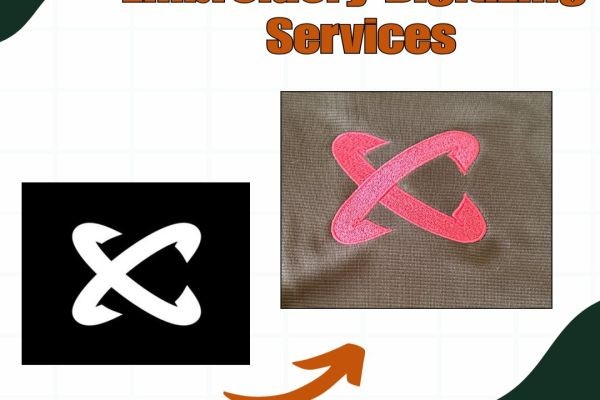In the custom apparel and promotional branding industries, the quality of your embroidered products is a direct reflection of your brand. Achieving a flawless, professional result is not a matter of chance; it begins with a strategic partnership with a reputable embroidery digitizing company. This choice is a critical business decision that directly influences production efficiency, material costs, and brand consistency.
An embroidery digitizing company is responsible for the crucial task of translating digital artwork into a precise, machine-ready stitch file. A superior partner acts as an extension of your production team, ensuring every design is built on a solid technical foundation. This guide provides a framework for evaluating and selecting the right company for your needs.
The Role of a Professional Digitizing Partner
A professional digitizing company offers a comprehensive service that includes technical expertise, quality control, and reliable support. Unlike low-cost automated services, a reputable firm employs a team of skilled digitizers with a wide range of experience. They have standardized processes to manage projects of varying complexity and volume, ensuring a consistent, high-quality output every time you place an order.
Key Indicators of a High-Quality Company
When vetting a potential partner, it is important to look beyond surface-level claims and assess their capabilities based on the following criteria.
Demonstrated Technical Expertise and a Diverse Portfolio: A company’s portfolio is a direct reflection of its skill. Look for a collection of work that showcases a variety of designs, from clean corporate logos to complex, multi-color artwork. Crucially, the portfolio should display work on different types of fabric, such as pique knits, structured caps, and fleece, as this demonstrates their ability to handle the unique technical challenges each material presents.
A Clear and Consultative Onboarding Process: A professional company will have a transparent and detailed process for taking on new projects. They should ask for critical information upfront, such as the specific fabric, the final size, and the placement of the design. This consultative approach is a sign of expertise; they understand that a file digitized for a stable twill cap will cause puckering on a delicate polo shirt if the stitch density, underlay, and pull compensation are not adjusted accordingly.
Robust Quality Control and Assurance: A commitment to quality is a major differentiator. Inquire about their quality control procedures. Top-tier companies often perform "sew-outs," physical stitch tests of the file to verify its quality and ensure it runs smoothly before it is delivered to the client. This step is an industry best practice and a strong indicator of a reliable partner.
Responsive Communication and Support Policies: A professional relationship depends on clear communication. The company should be responsive to inquiries and have a clearly stated policy for making edits or revisions if a file does not perform as expected. This support structure is essential for a smooth and dependable partnership.
Evaluating Long-Term Value Over Short-Term Cost
While it can be tempting to choose the lowest-priced option, a poorly digitized file often incurs higher costs in the long run. These "hidden costs" include wasted materials from ruined garments, increased labor from machine downtime due to thread breaks, and the significant expense of brand reputation damage. Investing in a reputable embroidery digitizing company is an investment in quality, efficiency, and the consistency of your brand.


